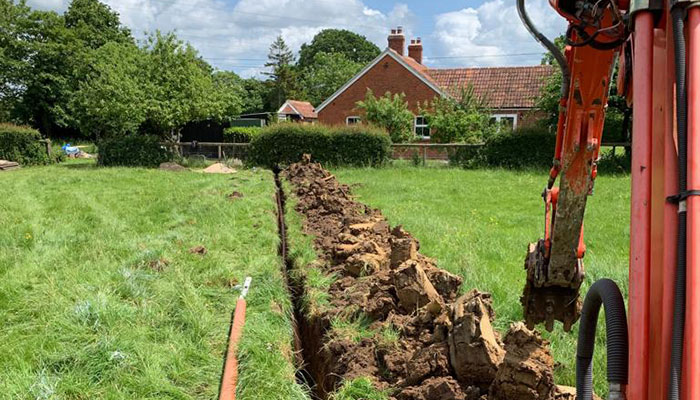Shared septic tanks can often seem like a lot of hassle, especially when problems occur. But, they don’t have to be. Read on to find out who is responsible, what you should do if there’s a problem and who foots the bill when it comes to shared septic tanks.
What do we mean by a shared septic tank?
Essentially a shared septic tank is one that is shared with other local residents, often your neighbours. They are usually situated within the boundary of one of the properties, or sometimes on third party land.
Whose responsibility is a shared septic tank?
Each resident is equally responsible for the shared drainage system, unless stated otherwise in your property deeds. That means that each household must take responsibility for regular drainage maintenance, septic tank emptying and any problems with the septic tank.
What to do if there’s a problem with your shared drainage system?
Problems with your shared drainage system can be quite frustrating. Although the septic tank is the equal responsibility of each household, problems can either go undetected or unresolved, whether that’s because of neighbour disputes or simply no resident stepping forward to take the lead.
If you do notice a problem with your shared drainage system, it’s vital you contact the experts at Proseptic. If left, problems can rapidly get worse leaving you with damage to your property and a hefty repair bill.
Where multiple households are involved in the ownership of a septic tank, our engineers will communicate the problems, repair options and costs with all parties to help take the stress out of shared drainage systems.
Who pays for the shared drainage system?
With equal responsibility comes equal share of the bill! Unless otherwise stated, each household must pay an equal share of the bill for septic tank maintenance or repairs.
Usually, we find the best way to deal with this is to draw up a professional agreement between neighbours. Therefore, everyone knows where they stand with regards to payment and responsibility, and how much they will be paying on a yearly basis. This can avoid awkward conversations at a later date and can prevent financial disputes over the septic tank. We would recommend getting a qualified, legal professional to assist with this agreement to ensure everything is covered.
Will an insurer pay out for a shared septic tank?
Of course, this depends on each individual policy, but, insurers can pay out or shared septic tanks. With multiple homeowners, and therefore multiple insurers, involved this is where the shared management of septic tanks can get confusing. It’s always best to check with your insurer what their policy is before you take out any insurance cover.
Buying a house with a shared septic tank
Buying a property with off mains drainage can be daunting in itself. But, a buying a house with a shared septic tank can be even more worrying.
If you are buying a property with a shared drainage system in place, it’s vital you understand what system is in place. As well as this you must investigate what agreement the current homeowners have in place at the moment. This way, you can account for the cost you will have to pay and ensure you don’t get into any neighbourly disputes at your new home!
If you have any further questions on shared septic tanks, or if you are experiencing a drainage problem, please contact our team. We will be more than happy to conduct a site survey to help you resolve your issue.
